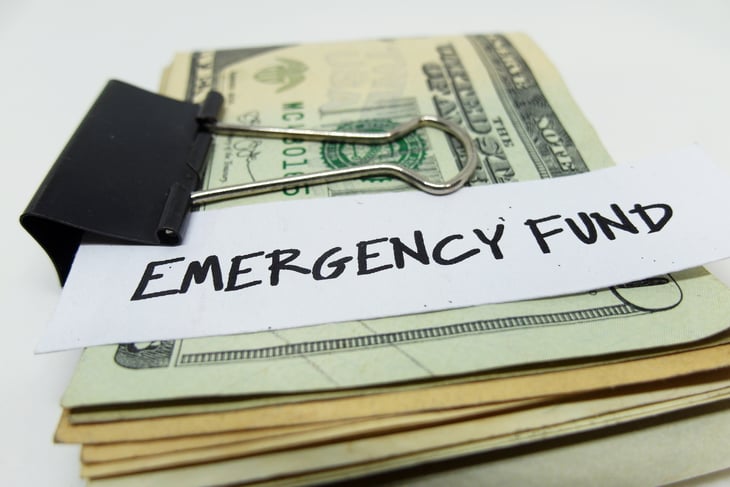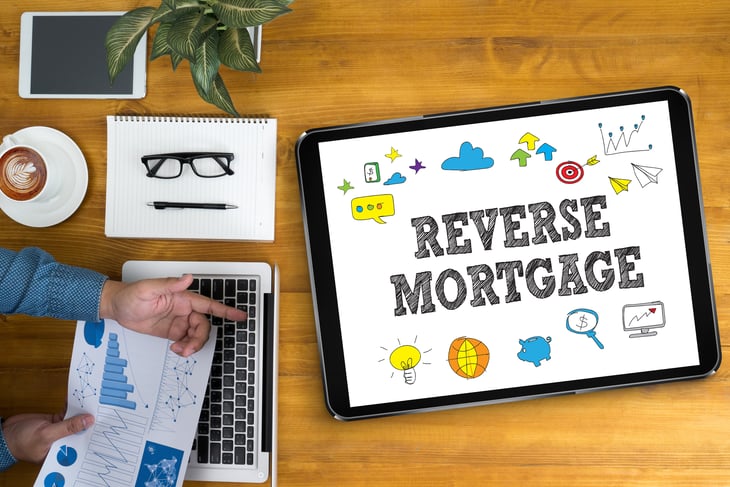
Editor's Note: This story originally appeared on NewRetirement.
With smart money management, global economic (and personal) financial crises can be just a temporary setback — not a long-term disaster. However, bridging to that secure future may be difficult when you experience setbacks.
You may need to consider immediate sources of emergency money or income.
You will see that finding the best source of emergency money for you is dependent on a wide variety of interdependent variables. We firmly believe that running alternate scenarios using the NewRetirement Retirement Planner can help you make better decisions for your short and long-term financial health.
Following are several ideas for emergency money in these stressful times along with an assessment of the pros and cons of each source of funding.
None is going to be perfect. All of these financial transactions have costs associated with them. However, we rate each emergency money source as either:
- Not the best idea
- Proceed cautiously
- Go for it
Take a look.
1. Tapping Emergency Funds and Cash Accounts

Rating: Go for it
Most personal finance experts advise that all households have access to enough cash to fund at least six months’ worth of living expenses at all times. (And, if you are retired already, then you ideally have access to one or two years’ worth of needed portfolio withdrawals.)
If you have this money, a big congratulations to you. Unfortunately, that is not a goal that most Americans have followed. According to Bankrate, only 39% of people can cover a $1,000 setback using their savings.
Pros of Using Your Cash Fund: You saved it for exactly this reason.
Cons: It can be stressful to deplete this cushion. Proceed with spending cautiously and be ready to replenish it when possible.
2. Starting Social Security Earlier Than You Had Intended

Rating: Not (usually) the best idea …
If you are at or near retirement age, you have probably already given some thought about when to start Social Security retirement benefits.
However, you may now be rethinking your decision-making and weighing the pros and cons of starting earlier.
While the conventional wisdom is to almost always opt to delay the start of retirement benefits until your maximum benefit amount is achieved, you may be seduced by the idea of starting now.
Pros: Social Security is a relatively easy way to boost your monthly income. (Although it does take about four to six weeks or longer from your application date to your first check.)
Cons: While starting Social Security early might be an efficient way to boost your cash flow, it is not likely your best decision. Social Security is a lifetime payment stream. And, the difference between starting the monthly payments early and delaying can be in the neighborhood of $100,000 over your lifetime.
Many experts believe that it is usually a better idea to run all other sources of money to zero versus starting Social Security early. Social Security payments last for as long as you (and your spouse) live, while savings are finite.
Run These Scenarios in Your Plan:
The best way to assess whether or not to start Social Security early is to run a variety of scenarios using the NewRetirement Planner or a spreadsheet. You will want to compare:
- Your and your spouse’s Social Security start dates, benefit amounts and goal ages (how long you want to fund retirement)
- The costs associated with any alternative source of funding (like selling assets now when markets are down)
3. Withdrawing From Investments Held in Taxable Accounts

Rating: Proceed with caution …
After an emergency fund or other cash accounts, you could start to look at tapping into investments made outside of tax-sheltered vehicles.
Pros: You may be able to realize some capital losses that offset other taxable income this year, lowering your overall tax burden.
Cons: Selling any investment at this point in time can be painful as you may be selling at a loss. You will want to carefully analyze whether selling these investments is better or worse than other investments in other types of accounts. Think through taxes, appreciation potential and selling at a loss.
4. Withdrawing Assets From a Roth IRA

Rating: Proceed with caution …
If you have to start withdrawing retirement funds, you might start with money held in a Roth IRA. You are allowed to withdraw from a Roth (the amount you invested, not investment earnings) at any time without penalties or tax.
Pros: The main benefit is that this strategy has no impact on your income tax bill.
Cons: As with taxable accounts, selling any investment at this point in time can be painful as you may be selling at a loss. And, more importantly, with Roth withdrawals you are giving up the opportunity to realize gains on that money tax-free.
You will want to carefully analyze whether selling these investments is better or worse than other investments in other types of accounts. Try modeling different scenarios in the NewRetirement Planner.
5. Loans From Your Traditional 401(k)s and IRAs

Rating: Proceed with caution …
The Coronavirus Aid, Relief, and Economic Security Act passed in 2020 made it easier to take withdrawals from your tax-advantaged accounts during the pandemic for virus-related reasons. However, more traditional hardship withdrawals are less forgiving and more difficult to get.
If you absolutely must tap your traditional 401(k) or IRA for emergency money, a loan from your account is probably your best bet to avoid the 10% early withdrawal penalty and all of the other taxes associated with the disbursement.
Pros: This is a loan you can make to yourself. So, if you need the money, this is an okay place to find it. Look to sell investments that may be long-term duds. Not sure which account to tap? Or which investments to sell? You may want to consult with a financial adviser.
Cons: It depends on your situation.
- If you must sell investments to tap this money, you might be selling at a huge loss.
- The money you borrow is not active in the market, accumulating returns when the market bounces back.
- Most importantly, this is a loan and you need to pay it back. So, you will need to make sure that you will have the means to do so in the future (or be prepared to pay the tax bill since the withdrawal will be considered taxable income).
- Can you commit to making the loan payments as well as continuing to make new contributions to your account? It is important that you continue to invest in your future.
- You usually have to pay back any 401(k) loan before leaving employment at a company.
6. Emergency Money: Life Insurance Cash Values

Rating: Go for it (cautiously) …
Did you know that if you have a whole life or variable universal life insurance policy, you can withdraw money from the policy and have it deducted from your policy’s face value?
Example: If you withdraw $10,000 from a policy with a cash value of $50,000, your heirs would receive $40,000 when you die. The withdrawals are tax-free, assuming they don’t exceed the amount you put into the policy.
Pros: You can gain access to money without much cost.
Cons: Be sure to check with your insurer about your policy. Sometimes insurers will reduce the death benefit by an amount greater than what you withdraw. You will of course also want to assess the potential impact on heirs.
Note: It is also possible to borrow funds from your life insurance, but you will pay interest, and it may not be the best use of your funds.
7. Emergency Money: Cut Costs

Rating: Go for it …
Depending on your budget, cutting costs can be incredibly difficult or relatively easy. Explore these 20 ways to cut costs.
Pros: There is not much bad that can come to your personal finances right now by cutting costs.
Cons: These are very difficult times. Consider carefully before cutting things that have measurable benefit to your personal well being. Also, think about who else you are benefiting with your spending. It seems that we are learning to vote with our dollars.
8. Getting a Home Equity Line of Credit

Rating: Go for it (cautiously)…
Your home is likely your most valuable asset. And, home values are at all time highs in many areas of the country.
A home equity line of credit is a loan where you are borrowing against any equity you have built up in your home.
Pros: Tapping your home equity through a home equity line of credit may be the most efficient loan available to you especially if you have a fair amount of equity in your home, only require a small loan, have a decent credit rating and will be able to pay it back.
Cons: There are a lot of considerations:
- If your credit rating is less than stellar or if you are not currently employed, your interest rate might be high or you might be denied the loan.
- Interest on HELOCs is not tax deductible unless funds are used for home improvement.
Use the NewRetirement Planner to model a Home Equity Line of Credit.
9. Secure a Reverse Mortgage

Rating: Proceed with caution
If you are 62 or older, then you may be eligible for a reverse mortgage. With housing values high and interest rates low, now is a good time to secure this type of loan if it makes sense for you.
A reverse mortgage is a loan that doesn’t get paid back until you move out of the home. You borrow your home equity, use part of it to pay off any existing mortgage (eliminating monthly mortgage payments if applicable), get access to cash, and you pay it back, along with the fees, interest and accumulated interest when you decide to leave the home.
Pros: The main advantage of reverse mortgages is that you can eliminate your traditional mortgage payments and/or access your home equity while still owning and living in your home. This type of loan can dramatically improve cash flow.
Cons: These loans can sound too good to be true. They are very interesting in the right circumstances, but think through these potential downsides:
- The interest and fees on a reverse mortgage can be higher than those associated with a home equity line of credit.
- You might also potentially reduce the size of the inheritance you leave to heirs. Homes typically provide a good backstop to retirees.
- You don’t want to tap your equity too soon and find you run out of money later in retirement.
Use the NewRetirement Planner to model a reverse mortgage or try the Reverse Mortgage Calculator to see how much money you can borrow.
10. Borrow on Credit Cards

Rating: Not the best idea
It may be tempting to buy groceries and other essentials with credit, but this is not the best idea.
Pros: It is easy.
Cons: You probably understand, the biggest con of credit card purchases is the same as the pro — It is easy.
And, it is easy because credit card companies are keen to make as much money from you as possible. Rates are high on credit card debt, if you can’t pay it off monthly, you will be paying a lot more than the value of the products you purchased.
11. Emergency Money: Increase Income

Rating: Go for it …
The job market is hot hot hot right now. Companies need employees — everything from white-collar workers to truck drivers are in high demand. Can you make a job switch and boost income? What about a side gig? Have you considered a retirement job?
Pros: You can make up for higher costs.
Cons: There are few cons to boosting income, especially if you can find a job you really love.




Add a Comment
Our Policy: We welcome relevant and respectful comments in order to foster healthy and informative discussions. All other comments may be removed. Comments with links are automatically held for moderation.